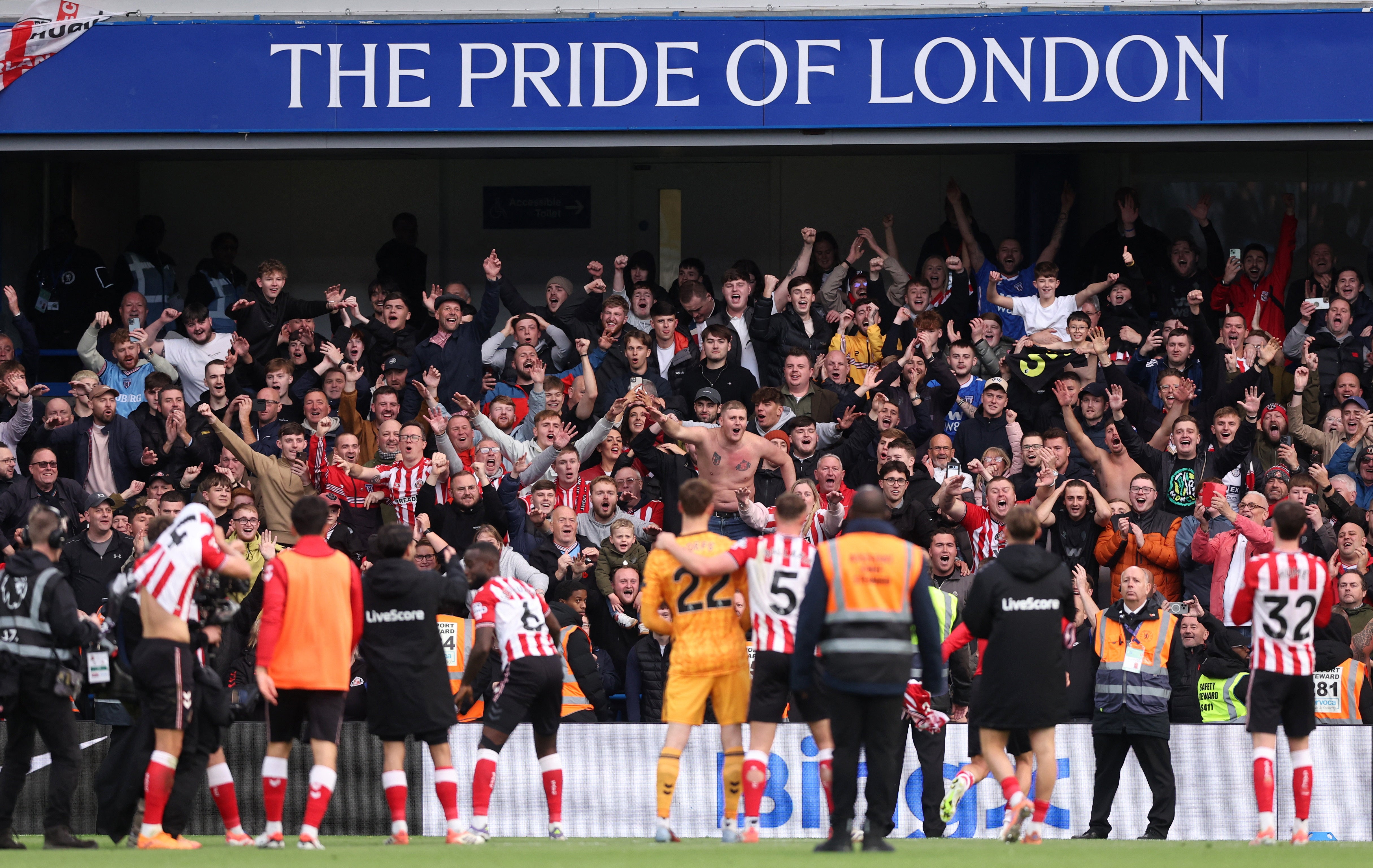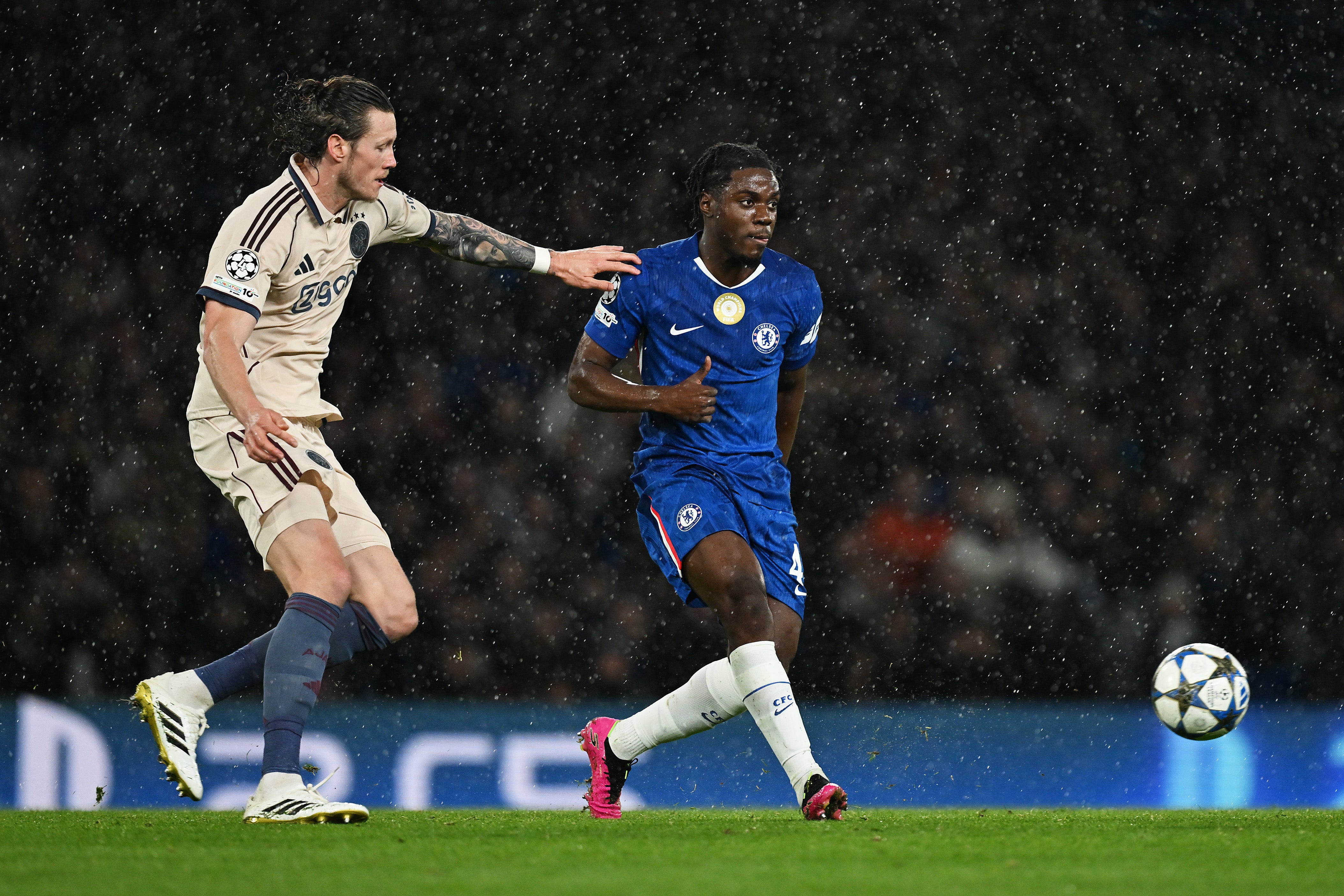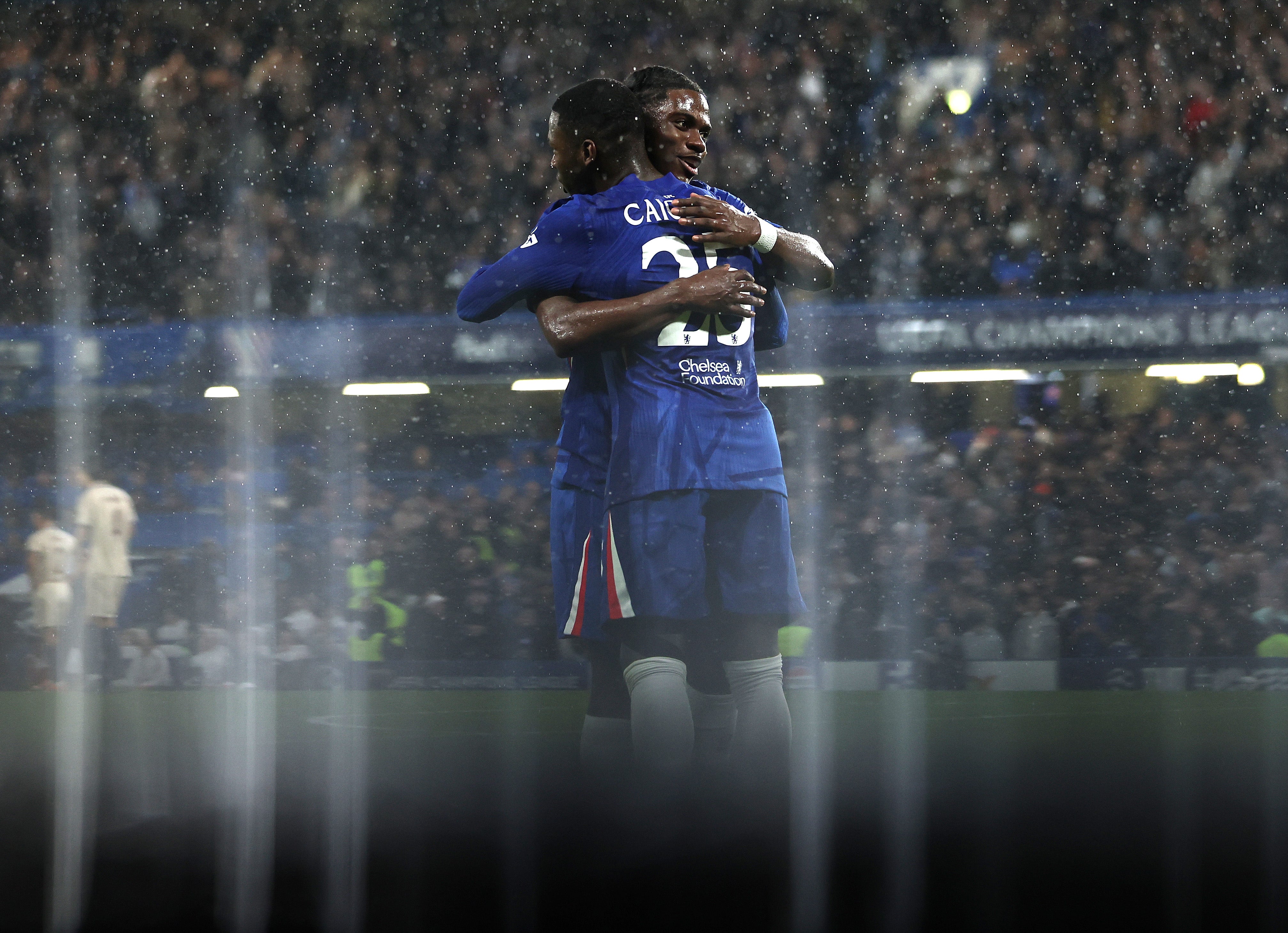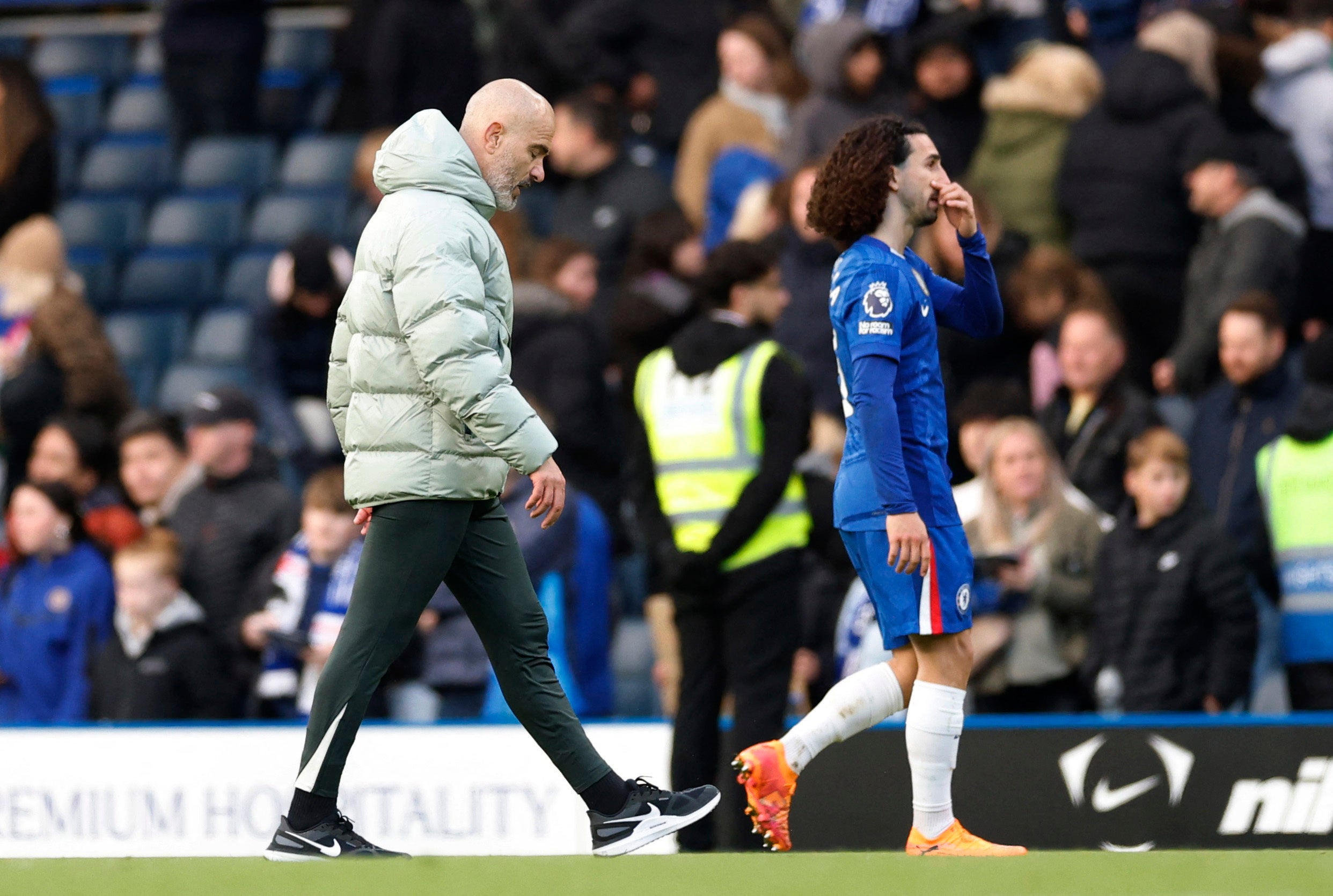Chelsea miss one player more than the rest and it’s not Cole Palmer
There were moments watching Chelsea at Stamford Bridge on Saturday which brought to mind that joke about Leicester winning the Premier League with three players in midfield: Danny Drinkwater in the middle and N’Golo Kante either side. There were times against Sunderland when Moises Caicedo filled the Kante role, essentially a one-man band without the ball as he attempted to break up attacks and snuff out passing lanes, running past teammates en route to the next fire.
Caicedo was notionally part of a midfield three with Enzo Fernandez and Joao Pedro, but his partners do not possess great defensive instincts and it showed in this 2-1 defeat , where Sunderland found it too easy to play through the centre of the pitch, and to defend it. Their late winner by Chemsdine Talbi was a gut-punch which emptied half the stadium onto Fulham Road, but it was well deserved.
Naturally, Chelsea missed Cole Palmer here, still out with a groin injury. Yet his best games have typically come against more open opponents – think of the space he found breaking forwards in the Club World Cup final – and he would have been frustrated by static teammates here, trying to ignite Chelsea without the kinetic energy to make a spark.
open image in gallery

So perhaps the player Chelsea really missed was Caicedo’s best partner, Romeo Lavia . Kante was even more effective when he moved to Chelsea and played beside Nemanja Matic in Antonio Conte’s title-winning side. They were ostensibly defensive players but their impact was offensive in the sense that they never let teams escape, never let counters develop, a security blanket that kept up waves of Chelsea pressure.
Caicedo and Lavia have a similar effect on the rare occasions when they play together. Lavia takes some of the defensive burden from his partner but it is his ability to evade the high press and his passing through the lines which add another dimension to the team. And Lavia loves playing with Caicedo. “Thank God I play next to the absolute destroyer,” he said this summer. “Sometimes he does my job. I’m like, ‘let me do a little bit’. He does it for me. Moi is unbelievable.”
Lavia was on the bench here and never came on, having made his first start of the season in midweek against Ajax. There is hope he can have a major impact this season although his minutes are being carefully managed after such a disrupted Chelsea career thus far – rightly so, of course. Maresca is now benefiting from similar caution with Reece James who is finding consistency for club and country.
open image in gallery

open image in gallery

But Chelsea have a problem at the heart of the team. This was a game which felt troubled from the first minutes when Sunderland passed the ball through Chelsea’s porous centre. It was Caicedo who hustled the ball after six minutes and sparked Chelsea’s first goal, finished coolly by Alejandro Garnacho, but it came against the run of play and there was never a sense that it would open the floodgates to a heavy home win.
Up front, Marc Guiu played with energy and his pressing efforts almost forced a couple of major errors from Sunderland’s back line. But Guiu offered little in an attacking sense, partly because he was starved of service but mainly because he is not the kind of No 9 Chelsea need against three physical centre-backs guarding their own box.
The alternative was Joao Pedro, who started as an attacking eight-ish-10, where he looked uncomfortable dropping into deep areas. The Brazilian has been only partially training in recent weeks as he nurses an injury and it showed, moving around the pitch like a man who had pulled both hamstrings. Joao Pedro’s only chance came in the first half when through one on one and, instead of shooting from 15 yards, he chose to pass the ball across the box to nobody in particular. Luckily the flag went up for offside which might have saved it from making the highlights package.
It wasn’t just Joao Pedro who looked laboured. Chelsea’s tempo was slow and their efforts to break down Sunderland’s deep defence lacked urgency, even in the dying minutes, as if they hadn’t spotted the giant digital clock ticking away. There were no overlapping runs around wingers to create overloads out wide and it meant Garnacho, Pedro Neto and their replacements were constantly outnumbered.
open image in gallery

This, of course, is the Maresca way, to be controlled with clear positions on the pitch, to play with patience and structure. Except this was a game that required invention and unpredictability in the face of a stubborn opposition. Even the regular flourish of Marc Cucurella surging up the middle of the pitch from left-back, chased by his own hair like a man fleeing a cloud of bees, felt overly stage-managed by the second half, arriving at his destination only to stand still when the pass never came. The same patterns repeated themselves as Chelsea funnelled the ball from one side to the other, saw no way through and went back round again.
Maresca turned to his bench in the final half an hour to find very little. Estevao came on the right wing and was lively without producing a definitive moment. Jamie Bynoe-Gittens took up station on the other side and looked like a winger with no confidence or match rhythm in his legs. Tyrique George was the only other attacking substitute, a promising young player but not yet changing games at this level.
After all Chelsea’s player trading this summer, it felt odd that Maresca had so little in reserve and a bench well short of the quality of substitutes available to Arsenal, Liverpool and Manchester City. The decision to send Nicolas Jackson to Bayern Munich doesn’t look wise with hindsight. Chelsea have myriad centre-back pairings and a stack of useful wingers, but their options in central areas are too thin when injuries strike.
It is three months since the Club World Cup final and any sense of momentum has drained away. Chelsea are ninth in the Premier League after nine games, while Sunderland are up to fourth. “World champions,” reads the banner above the first tier which wraps around Stamford Bridge, words which felt almost sarcastic by full-time, and perhaps only slightly more tenable than the Sunderland fans’ claim to be by far the greatest team the world has ever seen.